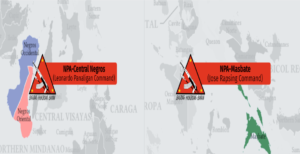
Argentina: Notes on the elections
The preliminary elections in Argentina were held on August 13. The democratic newspaper A Nova Democracia from Brasil reports, that the “results of the electoral farce brought to light an explosive situation in the country, with record abstention” and Peruvian comrades informed: “After the electoral failure of the peronist government, the devaluation of the currency and uncontrolled inflation put the government … on the strings.”
Despite the fanfares of the monopoly press, the real “winner” of these election was the boycott, even with compulsory voting in the country. The turn-out was 69.6 per cent, one of the lowest in presidential elections since the so-called “redemocratization” in 1983, and 7 per cent less than in 2019. Additionally, these elections registered 4.78 per cent of white votes and 1.21 per cent null votes. Together this makes up a total of 36.39 per cent of the people who boycotted the elections. The candidate who came out ahead out of the circus was Javier Milei, an ultra-reactionary, with only 30.1 per cent of the votes.
Milei’s campaign was marked by the guarantee in advance to keep Argentina subjugated to the interests of mainly Yankee, imperialism and comply with the dictates imposed by the International Monetary Fund (IMF). “The IMF should not have problems with the program we have presented, because we propose a much deeper fiscal adjustment than what they [other candidates and parties] propose,” Milei said.
Even with all the promises to imperialism to keep the country in the same conditions, Milei claimed to be different from the “Peronist” and “Macrist” policy. Perhaps the difference is due to the level of controverseries he causes.
The political and economic crisis that is shaking Argentina, reflects the crisis throughout Latin America, being one part of the general crisis of imperialism. In Argentina, inflation reached 110% in 2022. The country’s external debt is estimated at 44.5 billion dollars and poverty in the country currently affects 40% of the population. Just days before the election, a large demonstration in the capital Buenos Aires rejected the electoral farce and the crisis in the country. During the protests police murdered activist and journalist Facundo Morales Schoenfeld. The following day, a new massive demonstration condemned police brutality. Fierce clashes between protesters and repression troops were reported.
A 20 percent devaluation of the Peso was announced on Monday. After the devaluation that the government finalized on Monday according to deals with the IMF, businesses continue to adjust their prices, also encouraged by the rise of the dollar-exchange-rate that on Wednesday touched 800 pesos.
Desperately defending peronism the website pagina12 wrote: “This exponential jump in exchange rate pressures is not the result of chance but of Javier Milei’s economic proposals”, which was commented with laughter and it was stated that “the economic world collapses not because Milei has won but because these unhappy and corrupt lackeys of imperialism are the ones who rule”.
It becomes every more obvious that semi-feudality, bureaucratic capitalism and imperialism are an unbareable burden on the masses of the world and especially in Latin America. Hunger reached a total of 56.5 million people in Latin America, in 2021. The total debt of the Latin America and Caribbean region rose to 5.8 trillion dollars, i.e. 117% of the GDP of the region as a whole, in 2022, and according to the World Bank, an inflation of 9.9% is expected for 2023. Their reign, they call “democracy”, is also demoralized: dissatisfaction with the political regime affects around 69 per cent of the people. Hence, this, once again, underlines the condition of Latin America as the weakest link in the imperialist chain.

